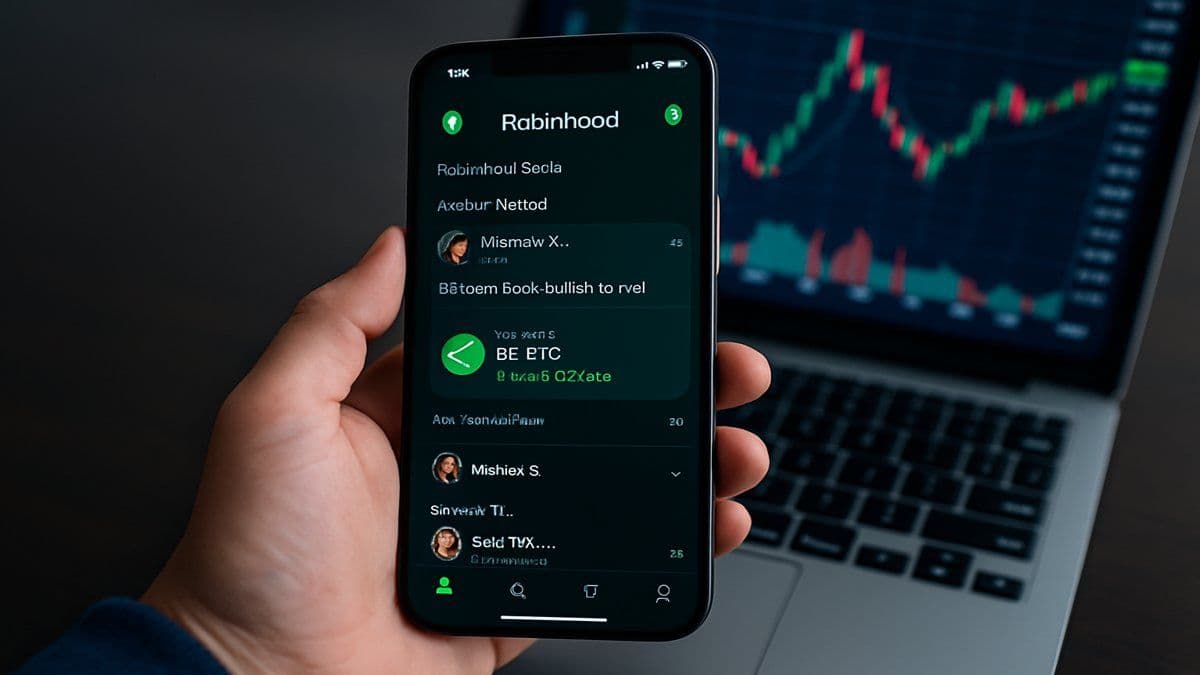Robinhood has unveiled Robinhood Social — a built-in social feed where users can share verified trades, follow others, and trade directly from posts.
A New Era of Social Trading
Robinhood Social combines community-driven discussions with direct trade execution, allowing users to execute trades directly from posts in their feed.
According to internal statements reported by Axios and The Wall Street Journal, the platform aims to make financial conversations more authentic by verifying trades and showing them alongside commentary. If a trader claims they just bought Bitcoin or sold TSLA, users will be able to see proof of the transaction on their profile.
“We want to replace the anonymous noise of online stock forums with verified, accountable insights,” a Robinhood spokesperson said. “When users see that someone actually executed a trade — not just talking about it — trust improves and learning accelerates.”
The feature has already launched in beta to select users in the U.S., with a wider rollout planned for early 2026.
Why This Move Matters
Robinhood Social represents a strategic pivot for the company: from being a low-fee trading app to becoming a full-fledged financial social network. This could reshape the dynamics of retail investing, especially in crypto markets where information moves at breakneck speed.
Key implications include:
- Transparency and Trust: By showing verified trades, Robinhood hopes to cut through the misinformation often found on forums like Reddit or X. Users can learn from real actions, not just words.
- Network Effects: Social engagement can boost app stickiness. The more friends and creators users follow, the more likely they are to stay — and trade.
- Behavioral Risks: Experts warn it could also amplify herd behavior. Seeing popular figures buy certain crypto tokens could spark momentum-driven frenzies, especially among younger investors.
- Crypto Integration: Robinhood confirmed that crypto trades will be fully integrated into the social feed, allowing real-time sharing of token buys and sells alongside stock trades.
“This could supercharge FOMO if not carefully managed,” warned a former SEC market structure adviser. “But it also makes markets more transparent — something regulators have long demanded.”
The Rise of Social-Driven Finance
Robinhood is not the first to blend social media and trading — eToro pioneered social copy-trading years ago — but its scale and cultural reach in the U.S. make this rollout different. With over 23 million funded accounts and a user base deeply engaged in crypto and meme stocks, Robinhood is positioned to turn social investing from a niche concept into a mainstream habit.
Analysts also see it as part of a larger convergence trend: as fintech platforms seek to keep users inside their ecosystems longer, adding content and community becomes as important as adding new assets.
A Bet on Engagement — and the Future of Retail Trading
If Robinhood Social succeeds, it could reshape the retail investing landscape:
- Create new financial influencers who rise through verified track records
- Accelerate how crypto news and sentiment translate into trades
- Force competitors like Fidelity and Charles Schwab to build their own social layers
But it also raises regulatory questions. The U.S. Securities and Exchange Commission (SEC) has previously scrutinized “gamification” in trading apps. A system that turns every trade into a public post could attract fresh oversight.

